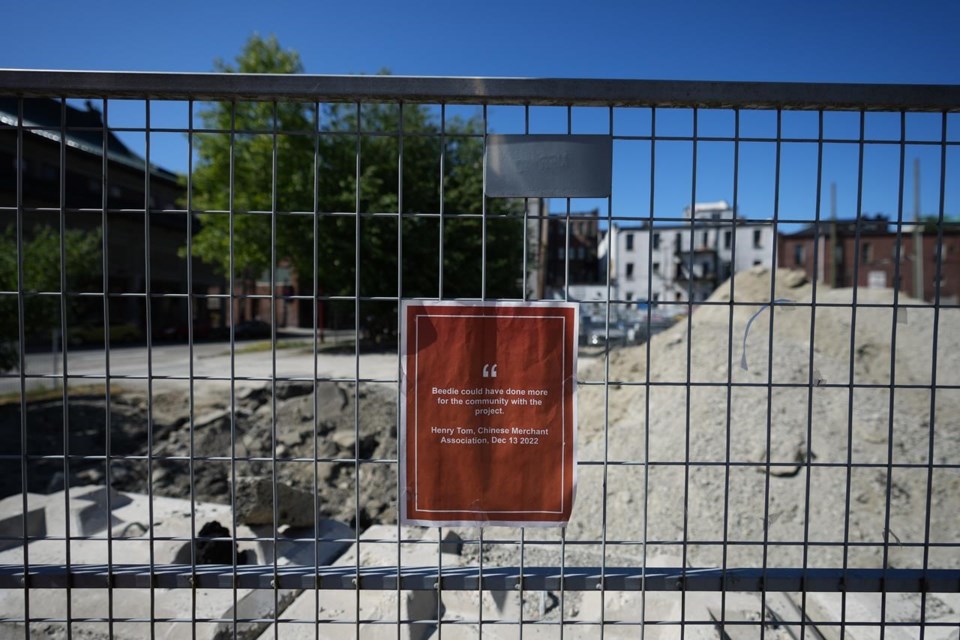Vancouver's development permit board has approved a controversial nine-storey residential tower in the heart of Chinatown that supporters hope will reinvigorate the neighbourhood but which critics see as a symbol of gentrification that fails to reflect the neighbourhood's needs and history.
The unanimous vote on Monday came after a years-long battle between the city and developer Beedie Holdings Ltd. over the site at 105 Keefer Street.
The approval is conditional on a series of recommendations by city staff, including adjustments to the building's facade and improving the building's relationship to nearby "culturally significant" features, such as the Chinatown Memorial Monument and the Dr. Sun Yat-Sen Classical Chinese Garden.
Rob Fiorvento, managing partner of Beedie, said the company was “obviously pleased” with the decision and "we look forward to working with city staff and community groups to move this project forward.”
“We are ready to roll as fast as the city is. So, we will set something up quickly with the city and the community groups to start the engagement,” said Fiorvento, adding that the project was in line with the city's efforts to revitalize Chinatown.
He said Beedie supported the permit board's call to review architectural features of the building "to further represent the character and culturally historic neighbourhood."
Jade Ho, an organizer with the Vancouver Tenants Union that opposed the "widely despised" condo project, said Monday’s decision marks a "singularly appalling moment" in a city which continues to prioritize “profit over people.”
“The decision that they made today is going to exacerbate displacement and it's going to accelerate gentrification in a neighbourhood that is already increasingly unlivable for low-income seniors and residents,” said Ho on Monday.
The permit board had repeatedly rejected the plan since 2017, citing neighbourhood opposition and a lack of compliance with its regulations.
However, a B.C. Supreme Court judge ordered the board to reconsider the project last year, saying it had provided inadequate justification for rejecting the building.
Critics of the plan to build 111 residential and commercial units on what is now a parking lot decried its lack of social housing, and said it was out of tune with the neighbourhood that is a national historic site.
But the project won the backing of several prominent Chinatown groups, including some that had opposed the project back in 2017.
More than 140 people, most of them opposed to the project, made presentations to the board at meetings on May 30 and June 12 that went long into the night.
Dozens of senior citizens and young activists gathered at Vancouver City Hall on Monday to follow the vote, some with the help of simultaneous translation devices supplied by community organizers who were opposed to the project.
The tenants union said in a news release that a "vocal fraternity of Vancouver’s elite" would applaud the decision, but the development "will only accelerate the destruction of a community they claim to care so much about."
It said the community would continue to fight against the project, which has been in the works since Beedie bought the land 10 years ago.
This report by The Canadian Press was first published June 26, 2023.
This story was produced with the financial assistance of the Meta and Canadian Press News Fellowship.
Nono Shen, The Canadian Press
Note to readers: This is a corrected story. A previous version said the translation devices were supplied by the city.



